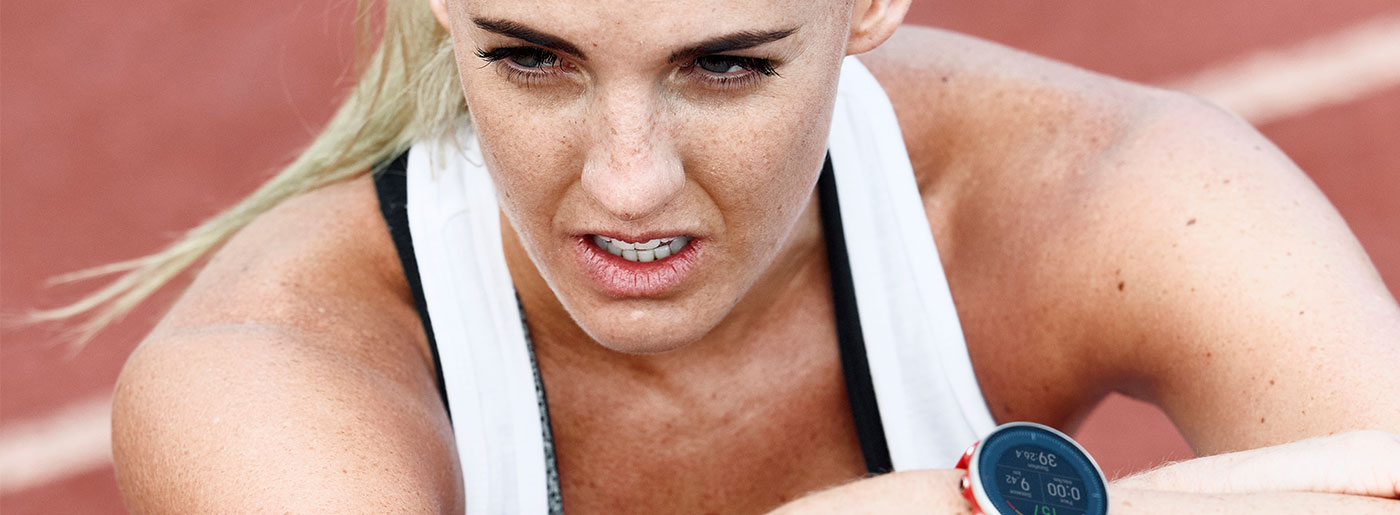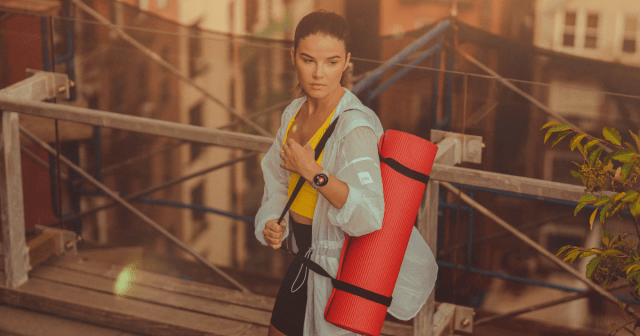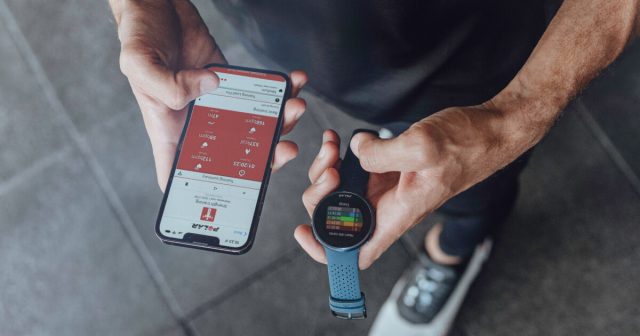No matter if you’re a new triathlete dreaming of an IRONMAN finish, or a professional runner dreaming of Olympic gold, athletes are no strangers to big dreams. These visions and goals are powerful and can fuel us through a tough training block or seemingly insurmountable injuries.
But while many of us dream big, very few actually see these dreams through to fruition. It’s true, the journey is sometimes more valuable than the destination, but what happens once your dreams do come true? Does a previously focused life become empty and directionless? Can you find new dreams and set new goals after achieving a dream?
To answer these questions, we spoke with a handful of elite endurance athletes who have reached the pinnacle of their respective sports. Here are their insightful responses.
What was your dream, and how long has it been your dream?
Krista Pärmäkoski, Finnish cross-country skier and Olympic medalist: Already at the age of seven, I wrote an essay that my dream would be to become a skier. The same dream has guided me ever since.
Michael Wardian, American marathoner and ultra-marathoner: My first dream was to play Division I lacrosse and that was a dream from the time I was about nine years old until I made the team at Michigan State University which was when I was 18 years old. I worked super hard, thousands of hours to achieve that goal, and once I got it, I wanted to be an All-American which was extremely difficult.
My running dream was to qualify for the 2004 Olympic trials. I made the decision to try and qualify in 2001 on a mountain top in India overlooking Mount Everest. I was winning a 100-mile stage race and I thought I can always do this longer stuff later in life, so I should try and run a fast marathon and I just decided.
I think sometimes the hardest part is making the commitment, and once you are determined anything is possible.
Kelsey Withrow, three-time Ironman 70.3 Champion: When I started racing the longer distances, my goal was to eventually win an IRONMAN 70.3 race and now it’s to win an IRONMAN.
Haley Chura, NCAA Division I National Champion and Ironman Champion: One of my earliest dreams was to swim on an NCAA Division I National Championship Team. My dream to swim in college started when I was probably ten years old and I saw older girls on my team graduate and return with amazing stories about swimming in college. I really admired them and wanted to share their experiences.
In high school, I was on a team that won a State Championship and I loved the feeling of working toward a collective goal in a typically individual sport. I wanted more of that on an even bigger stage.
Jocelyn McCauley, professional triathlete and Ironman Champion: I have several dreams and goals with triathlon. One of the dreams I have been able to accomplish is to win an IRONMAN. It was my dream ever since I had become a professional triathlete.
Lisa Bentley, 11-time Ironman Champion and author of An Unlikely Champion: My big goal was to win an IRONMAN. I did that in New Zealand in 2000 and I was over the moon! Opportunities arose from my win and that win catapulted me on the IRONMAN stage as one of the ‘favorites’! I loved being an IRONMAN Champion. Then in 2001, I returned and won IRONMAN New Zealand again.
What did it take to make that dream come true? Any sacrifices?
Krista Pärmäkoski: I don’t feel they are sacrifices, more like choices. I’ve made a lot of choices so that I could achieve my dream — no hanging out late, clearing the calendar for daily naps, sleeping around 10 hours a night, minimizing all stress factors.
Michael Wardian: To achieve my goal of qualifying for the Olympic Trials it took a ton of work. It was early mornings, track works, tempo runs, finding people who were stronger and better than me, and getting my body used to what it needed to endure to hold 5:25/mile pace for 26.2 miles.
I don’t think there is a better feeling than knowing you gave your all.
I am driven and doing the work is something I enjoy, so I don’t think there is a better feeling than knowing you gave your all. I had to sacrifice sleep, nights out, time with friends, my video game addiction, but every time I made a choice and I decided that this is what I am doing to achieve my goal so it also inspired me.
Kelsey Withrow: Lots and lots of poor performances led to my three 70.3 wins. With each terrible and rather embarrassing race, I learned so much of what not to do and what I needed to do to compete with the best.
Haley Chura: I wasn’t fast enough to earn a full-ride swimming scholarship at a National Championship-caliber program, so I worked really hard in school and also applied for every academic scholarship I could find. I got a lot of ‘NOs’ but eventually pieced together enough financial aid to make my dream of swimming at the University of Georgia a reality.
It took a lot of belief in myself and in the process.
Jocelyn McCauley: It was almost two years in the making to be able to win an IRONMAN. It took a lot of learning as a new professional triathlete as well as many other investments, particularly a lot of time. It also took a lot of belief in myself and in the process.
How did your life change after achieving a dream?
Krista Pärmäkoski: Publicity changes life a bit since people recognize you in supermarkets, restaurants, etc. You need to keep it in mind when you walk on the streets. This is sometimes a bit stressful, I’m not so much into publicity, I just love sports and competitions!
What I was battling with as I think many people do is ‘what next, where do I go from here?’
Michael Wardian: After achieving a dream, my overall life exploded. I was so much more confident in my abilities. I felt like I was a real runner (which feels silly now) but it was a turning point and gave me the ability to expand my mind and turn my attention to even bigger and more audacious goals. What I was battling with as I think many people do is ‘what next, where do I go from here?’ I am a bundle of ideas so it didn’t take me long to come up with the next goal.
Kelsey Withrow: People knew my story of coming back from a serious injury and then go and win some races. It was probably motivating and inspiring to some because I got a lot of new followers on social media.
In sport, I actually struggled a bit after achieving my dream.
Haley Chura: In general, my self-confidence grew, and as I started to look for jobs after college, I felt like I felt really good about the challenges of entering the professional world. In sport, I actually struggled a bit after achieving my dream. I worried I would never be able to top that moment, and I was afraid of regression.
What kind of emotions did you go through after achieving your dream — immediately after, and then after some time had passed?
Krista Pärmäkoski: In the 2018 Olympics, when I got my very first personal Olympic medal, it made me cry right after the race. I had been waiting for the moment for so long, and when it came through, I just let the emotions come out. It’s one of those ‘never forget’ moments and now, after some time has passed, the feeling is pure happiness. I still get a smile on my face when I look back on that day!
As soon as I crossed the finish line I felt immensely proud but also relieved.
Michael Wardian: It was strange when I entered the stadium in Detroit and saw the clock and I knew I was going to make the Olympic Trials Standard sub 2:22 (the old Olympic Trials standard was 2:22). I felt nervous that I was going to trip or pull something but as soon as I crossed the finish line I felt immensely proud but also relieved.
I had invested so much time and energy into it that I wanted to grab everyone that helped and encouraged me and give them a huge hug. I also cried as I was just overcome with emotion and couldn’t vocalize it. In the days after, I felt empowered. I had found something to dedicate myself to and I wanted to hone my craft and explore the limits of what I was capable of.
Kelsey Withrow: I just couldn’t believe that I actually won. It was such a long shot to win but it just goes to show that if you work really hard and believe in yourself, despite the odds, dreams can come true. It just takes a lot of work. I never take a win for granted.
In the next couple years I struggled with feelings of inadequacy, as we failed to replicate the success.
Haley Chura: Immediately post-meet, the feeling was electric. I felt like I could achieve anything if I put my mind to it. In the next couple of years, I struggled with feelings of inadequacy, as we failed to replicate the success of that National Championship. Now, more than a decade after achieving a dream, I feel nothing but pride for myself and my teammates.
Jocelyn McCauley: I remember screaming with excitement as I crossed the finish line. Right after I crossed, I looked around for my husband for a hug. The journey to get to any dream is always a group and team endeavor and so when that dream was accomplished, I wanted to share it with the biggest member of my team. I remember giving him a big sweaty hug and both of us just crying. We cried tears of joy and amazement as well as for the realization of all the investments we had put into the journey.
Since time has passed I still look back at that with fond memories. I still have the picture as a daily reminder on my phone. I have a picture of the finish in my training room to have as a memory while I train. I use the memory of the emotions at the finish as motivation for my next finish line.
Winning an IRONMAN is so hard and requires so much to go right and yet, I felt empty!
Lisa Bentley: Winning an IRONMAN is so hard and requires so much to go right and yet, I felt empty! I had had so much pressure to defend and yet when I did, my mind went to ‘what now?’ versus ‘how fantastic is this?’ Why? In the words of Tony Robbins, “success without fulfillment is the ultimate failure”.
My first win was fulfilling. I had focused my life, training, and recovering on securing the skills, stamina, and knowledge to win an IRONMAN — to cross that line first, to be better than my competition, to go faster, hydrate smarter, be mentally tougher. I was 100% fulfilled. The 2nd time around, I lacked a good reason to win again.
If you felt some post-dream blues or emptiness, how did you overcome those feelings? Did you recognize why you were feeling that way?
Michael Wardian: I really didn’t have too much post-dream blues because, and I think this was key for me, I already had my ‘next thing’ so I knew ‘what next’. I think, though, that I did have doubts. I thought, what if this is as fast as I will ever run and as high as I can go, so why bother to try and improve?
What if this is as fast as I will ever run and as high as I can go, so why bother to try and improve?
But I didn’t dwell too long on those feelings as they are not beneficial and I tend to be a glass half full person. I didn’t recognize exactly why I was feeling that way but I did know something was off. I knew that if I had a race lined up I was happy and driven so I signed up for something very quickly.
Kelsey Withrow: Once I achieved my dream, I made a new goal and dream which for me is now winning an IRONMAN. The good thing about my dream is that I have several chances to achieve it.
I struggled with feeling like I would never replicate that feeling of achievement.
Haley Chura: The years following that National Championship were hard. My swimming times slowed, and I struggled with feeling like I would never replicate that feeling of achievement. Luckily, I had an amazing support network and my parents and grandparents bought me a used triathlon bike as a college graduation present. All of a sudden I was a beginner again, in a new sport where I could feel that rush of improvement.
It is what is inside that drives you.
Lisa Bentley: Emptiness after achieving a big goal is very possible. To remedy that, we each need to find something inside of each of us that fires us up and gives us a reason to jump back in the ring and be our best self. Perhaps you are a role model for your teenage children or maybe you are using sport to manage some health issues. Or maybe sport brings you a feeling of invincibility in spite of other mental health issues. It is what is inside that drives you. Find it. Hold onto it. And put that on a pedestal.
Was it difficult to start dreaming again and set your eyes on the next goal? If so, how were you able to do that?
Krista Pärmäkoski: It wasn’t hard at all to start focusing on following races and next goals. Even after the Olympics as a three-time Olympic medalist, I had the next target immediately on my mind!
Michael Wardian: I don’t find dreaming hard, it is hardwired into me. I love coming up with big, ridiculous, and fun goals that fire me up and give me that ‘heck yeah’ mojo. Something that I try and use to filter what I want to focus on are things that scare me. I want to be doing things that are just at the point of failure. I want to be freaking out as I set out to do whatever my newest goal is.
Kelsey Withrow: It wasn’t difficult at all. If anything it was easier to have a new goal.
Haley Chura: After achieving a dream, it took me several years, but with the help of family and friends, I began to dream about new goals in my new sport of triathlon. Nine years after winning that National Championship in swimming, I achieved a new dream of winning an IRONMAN.
Jocelyn McCauley: For me, the accomplishment of this one dream helped propel my motivation for the next goal. Since I was able to achieve this, it gave me assurance I could keep progressing.
What is your next dream or goal?
Krista Pärmäkoski: I have two goals: to become World Champion and Olympic gold medalist.
Michael Wardian: My next big goal is to run approximately 600 hundred miles across Israel and qualify again for the 2020 Olympic Trials. My super big goal is to run across the United States.
Kelsey Withrow: To qualify for Kona and to win an IRONMAN. I also would still like to win some more 70.3s.
Haley Chura: I am still racing triathlon and most of my current goals are triathlon-related. I don’t feel like I’ve reached the pinnacle of my abilities in this sport yet, and most of my goals these days are more process-related, such as executing a race at the paces I train for or managing my day-to-day and mid-race nutrition, rather than about winning a specific race. I do have a few outcome-related goals as well, such as someday returning to the IRONMAN World Championships in Hawaii. I feel like I have a lot of unfinished business with that race.
Jocelyn McCauley: There are too many to name! Seriously, way too many. The next goal on a timeline is to win IRONMAN New Zealand in 2019. That race means a lot to me as it was my first professional race ever and was able to win it in 2017.
I advise my athletes to always find their ‘why’ for the race.
Lisa Bentley: My personality is such that I need purpose. I advise my athletes to always find their reason ‘why’ for the race. It is not good enough to just ‘go fast’ or ‘beat others’ or ‘win your age group’. When you are racing for eight to 17 hours, the mind needs a reason far deeper than a finish line especially when things start to unravel.
For me, my ‘why’ has always been to have an impact. I have Cystic Fibrosis (CF) — a genetic disease that caused an abnormal amount of sticky mucous to clog the lungs. This results in frequent chronic lung infections, pancreas problems, lung damage, lung transplantation, and ultimately an early death. The median age of survival of a person with CF in 1980 was 12 years old. Now it is closer to 50 years old.
CF became my ‘why’. I always said I was blessed with two gifts — the gift of sport and the gift of CF. Sport had developed my self-esteem and confidence and a wonderful family of fellow athletes to interact with. And sport kept my lungs healthy by helping me to move the mucous. Sport made my lungs strong. And CF brought me purpose. I had a reason to finish every workout and every race because that workout was physiotherapy for my lungs and that race brought hope to families with CF.
I have been told that when parents find out that they have an infant child with CF, they bury their heads in their hands. They see ‘early death’ and ‘lung transplant’ in their child’s future. But at the Hospital for Sick Kids in Toronto, the doctors ask the parents ‘have you heard about Lisa Bentley — she has CF and she races triathlons and has won 11 IRONMAN events’. And then, they raise their heads with hope!
Are you still in love with your sport after making your dream come true? What keeps you coming back, or not?
Krista Pärmäkoski: I had difficulties with motivation in 2012 when I was maybe too young to travel all around the world competing, and the pressure from media surprised me. After the season I had the longest training break during my carrier when we went through the situation and analyzed the reasons for bad feelings.
I just needed to find the simplest reasons why I love sports and focus on them.
After that, I have had super motivation in spite of the uphills and downhills during my carrier. I just needed to find the simplest reasons why I love sports and focus on them. I love the feeling after training, I love the possibility to do sports as a job and I love racing against other top athletes!
Michael Wardian: I am so infatuated with endurance and running. I am very committed and passionate about staying hungry and being relentless in the pursuit of my goals and I hope that my dedication and drive can push someone else to think big and push a bit harder than they thought they could. That keeps me coming back.
Kelsey Withrow: Yes, I’ve been competing as a pro for 17 years. It took 16 years to get my first professional win. It’s knowing that I can compete with the best and that it’s possible to win is what keeps me coming back.
Haley Chura: I am more in love with swimming today than I was, even at the peak of my collegiate career. Now I see all the gifts the sport gave me, including teaching me that hard work does pay off, and the skills you learn in sport can often translate to life, or even another sport!
Just because a dream or part of a dream has been made true doesn’t mean you stop dreaming. You keep dreaming new dreams and seeing what else you can do!
Jocelyn McCauley: Of course! I made my dream come true of marrying the man of my dreams and I’m still mad in love with him so just because a dream or part of a dream has been made true doesn’t mean you stop dreaming. You keep dreaming new dreams and seeing what else you can do! My ultimate dream is to be the best I can be against the best there is. That dream has no set destination, it’s a journey.
Success without fulfilment is the ultimate failure!
Lisa Bentley: What is your why? Write it on a piece of paper and stick it on your bathroom mirror. Revisit it daily. Commit to it. And you will never have emptiness regardless of the time on the clock! Success without fulfilment is the ultimate failure! Lead with your heart and you will always finish with a smile.
If you liked this post, don’t forget to share so that others can find it, too.
Or give it a thumbs up!
I like this article
Please note that the information provided in the Polar Blog articles cannot replace individual advice from health professionals. Please consult your physician before starting a new fitness program.





